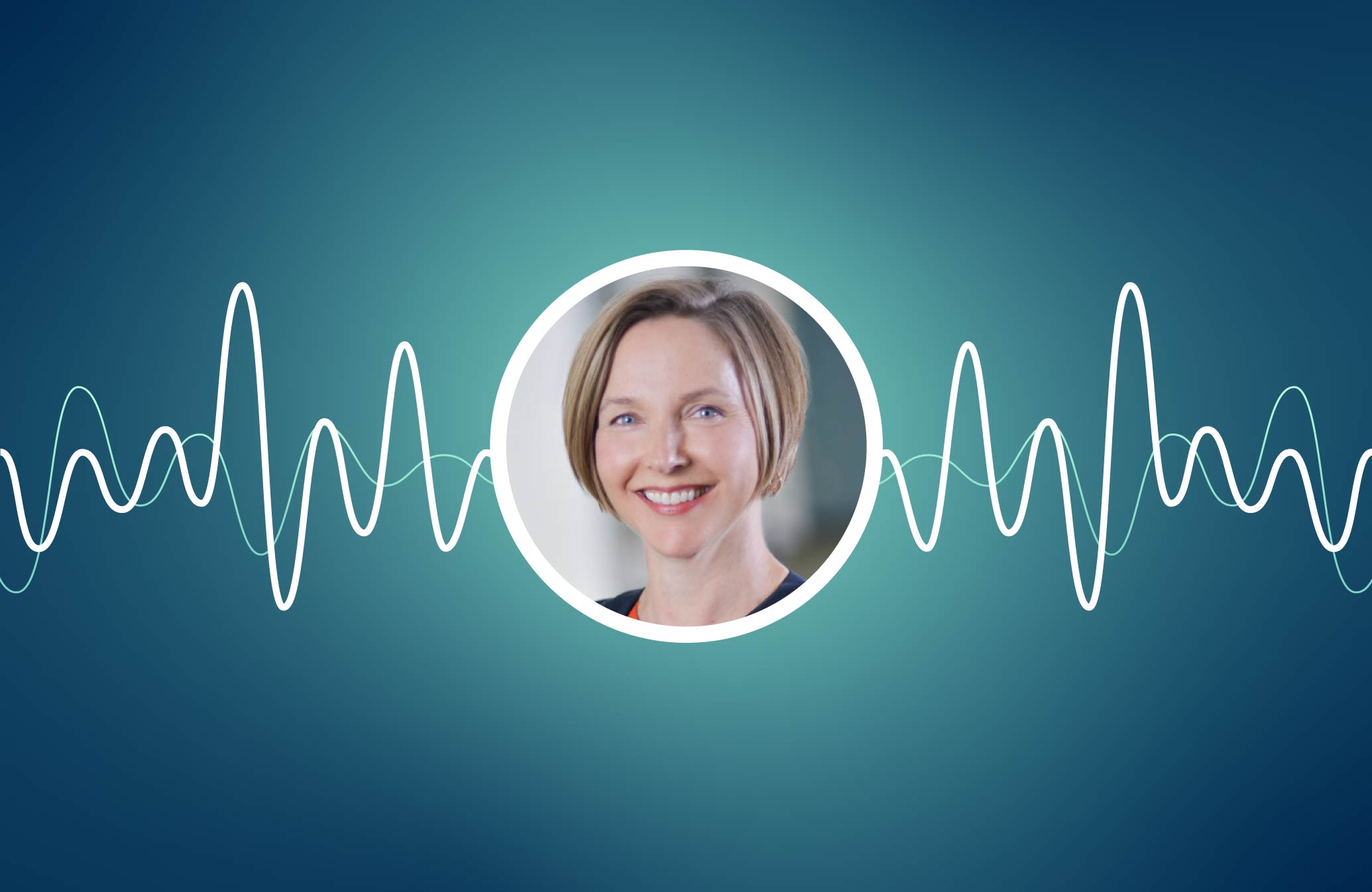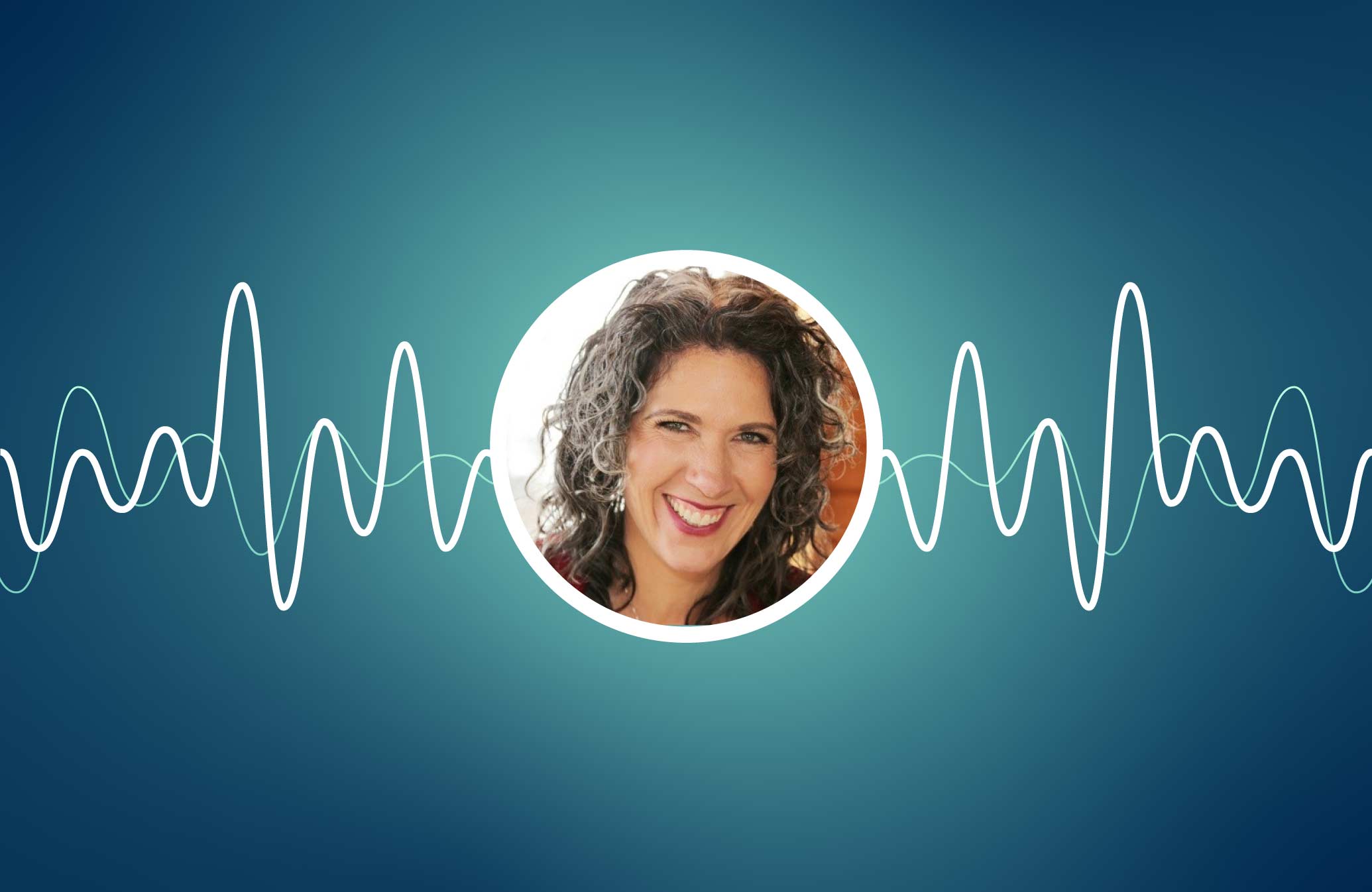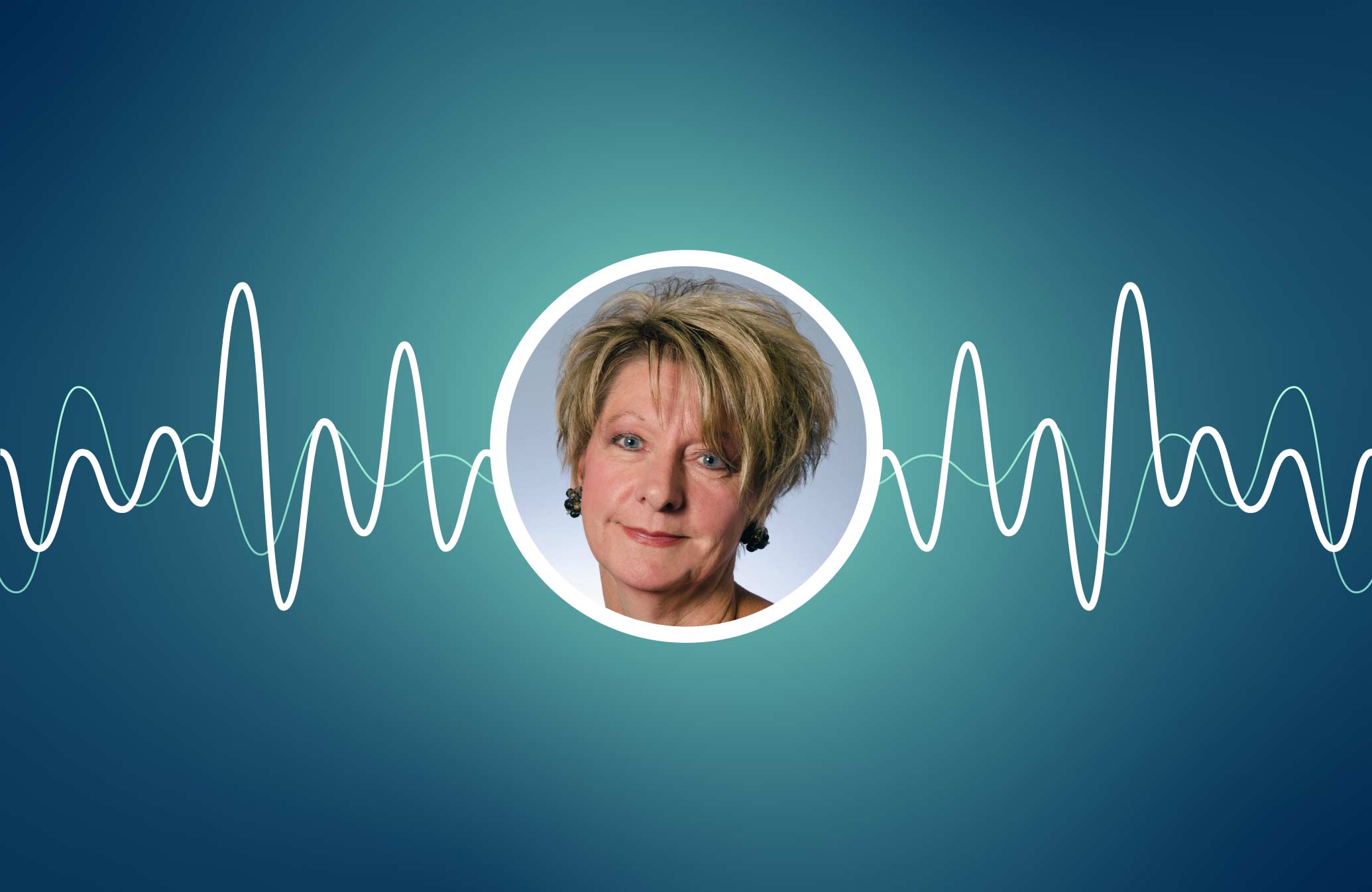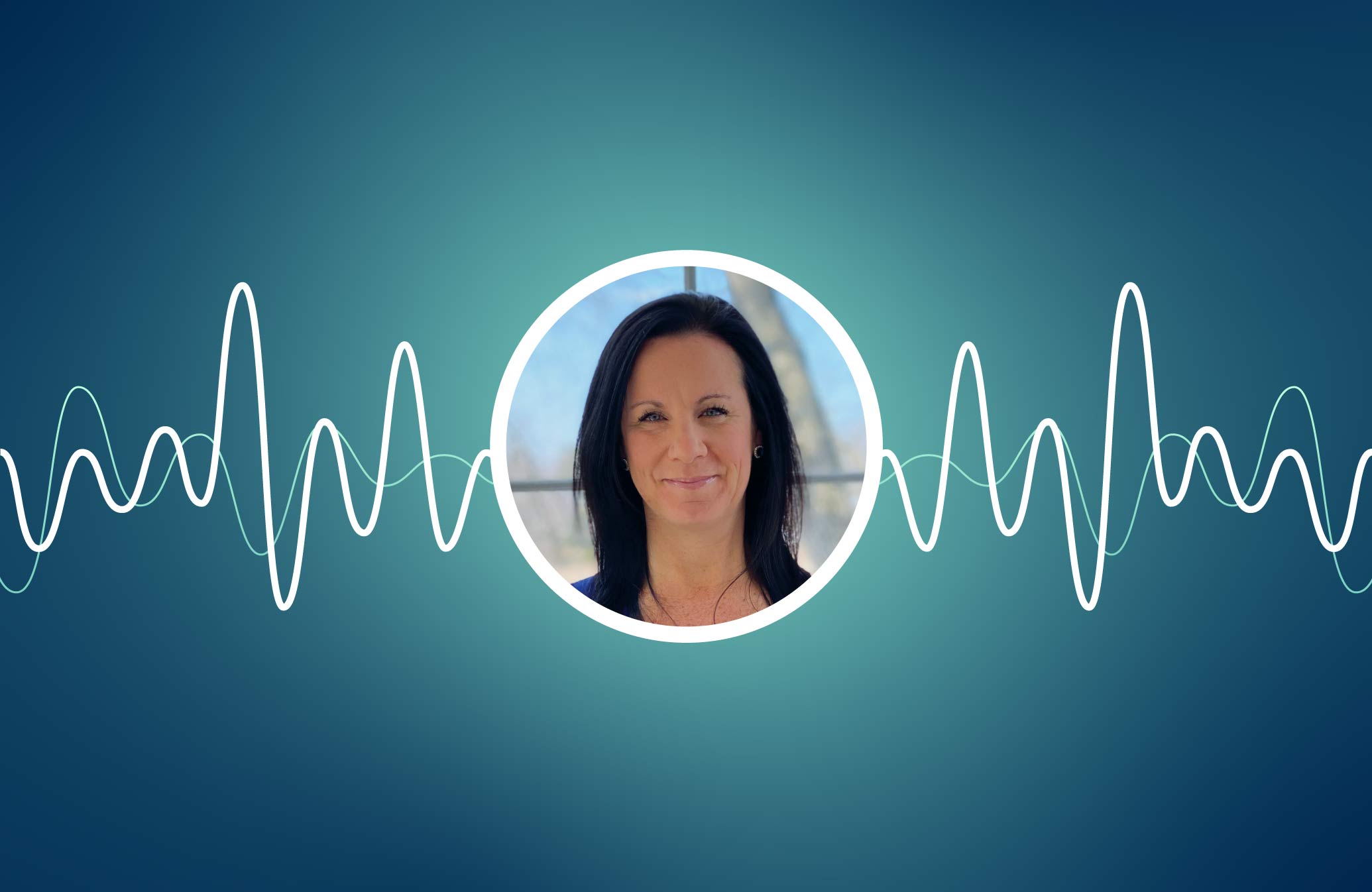Listen Now
Episode Transcript
Announcer [00:00:00] Welcome to RadioRev, podcasting from the heart of healthcare in Minneapolis, Minnesota. This is the podcast for change makers looking to do more than just health engagement. It’s about getting people to take action and do things that actually improve their health. It’s a radical idea, right? So we’re talking with the leaders, innovators, movers, and shakers who are bringing new ideas, inspiring others, and leading the way.
Jenn [00:00:26] Welcome to another episode of RadioRev. I’m Jenn Dellwo. Joining us today is Tani Hemmila, Director of ICSI’s Minnesota Health Collaborative, an organization comprised of healthcare leaders across Minnesota who are working to build a stronger mental health system and address suicide, reduce opioid-related deaths, and integrate social needs into healthcare. With a background in business, macro social work and mental health, Tani has developed and led many programs and initiatives at ICSI to improve systems for the health of our communities. She also develops and conducts trainings and workshops on quality improvement, collaboration in teams, and motivational interviewing. Originally from northern Minnesota, Tani is mom to four grown children and is an avid outdoor explorer, including river kayaking. Now, there’s so much more I could say, but I want to get right into it. So if you’d like to read Tani’s full bio, make sure to check out the show notes. Tani, welcome to the show. Thanks so much for being here.
Tani [00:01:17] Thanks for having me. I’m excited to be here.
Jenn [00:01:19] So before we dive in, we start every episode with the same question. It’s an important one. What’s your favorite ’80s song?
Tani [00:01:26] OK, well, that is really hard for someone who grew up in the ’80s. I was a teenager in the ’80s. So I guess what do you most want to know? Do you want to know the first song that caught my ear and made me catch fire for the love of rock and roll, which would be kind of an awkward answer, but we could do that. And then the second is, do you want to know what’s the music that was most meaningful? That if I was stranded on a desert island, you don’t want to miss this song or this album?
Jenn [00:01:56] Well, everybody loves an awkward story, so we can start with that. I’d love to hear what first turned you on to ’80s music.
Tani [00:02:04] So it’s got to be “I Love Rock ‘N Roll” by Joan Jett. I mean, classic and woman rocker, woman power. {music plays}
Jenn [00:02:15] And so I still want to know the other one.
Tani [00:02:30] OK, so that would have to be REM, their very first album, “Murmur.” Any of the songs, particularly “Laughing” or “Sitting Still.” If you haven’t heard it, you just you have to. {music plays}
Jenn [00:02:54] Now that everyone has danced to both of those songs…I’ve mentioned ICSI a few times. Those are initials. Can you tell us what those initials, ICSI, stand for?
Tani [00:03:05] Yeah, that is Institute for Clinical Systems Improvement. And as you said, people have known us as ICSI for decades.
Jenn [00:03:12] When and why was the organization created?
Tani [00:03:16] You know, ICSI is really a network. It’s a network of people in Minnesota and the Midwest who take action together to tackle our most challenging healthcare issues. ICSI members together care for over 80% of the people in Minnesota. And that means rural health, federally qualified healthcare centers, as well as major urban healthcare systems, hospitals, clinics, and health plans. ICSI was created in 1993 when the systems, the health plans, and employers got together and said, “What if we could do better if we worked together for our communities?” ICSI brought the evidence and quality improvement arm into that effort where physicians and others across the state get together and create clinical guidelines for care that have been used nationally and internationally for over two decades. We still do that work. Additionally, all of these member organizations also committed to really improving their processes and care for people. So really, ICSI is about taking action to really improve care.
Jenn [00:04:24] That’s perfect because Icario, as you know, is also about getting people to take health action. So we have a lot in common there. So from creation to now, I understand that ICSI’s work has transformed quite a bit in the last couple of years. Can you tell me how that has come about?
Tani [00:04:42] Sure. Thanks. So as an organization and as a network, we are member-funded, mostly, and also member driven. So our network determines what we do. A few years ago, senior leadership had honest conversations with the CEOs of our member organizations and said, “OK, what do you need an ICSI for now, over 25 years after it was founded?” And that birthed the Minnesota Health Collaborative, which is most of our work today.
Jenn [00:05:10] OK, and so perfect segue, because I mentioned the Minnesota Health Collaborative in your bio, and you just brought it up there. What is it?
Tani [00:05:17] So you can think of Minnesota Health Collaborative as an incubator and an activator for targeted problem-solving and action on tough health issues. This is where people get together and really share the dirt on ‘here are the issues we’re seeing.’ Here’s what we can do to make a difference and make changes, and sharing those practical implementation strategies. The founding members of the Minnesota Health Collaborative are the largest healthcare systems and plans in the state. So we have a statewide and both a metro and a rural focus. These are the healthcare systems and plans, they’re thought leaders and innovators, and they have the resources to be able to really start to move change. I will say across the state, we’ve got a really innovative state, in some of our rural areas and smaller healthcare members and clinics, some in others, they’re also highly innovative and resourceful. And so in the Minnesota Health Collaborative, we’ve got about 200 people in our working groups, a number of different working groups, working currently on the issues of mental health and the opioid epidemic and some beginning work on social determinants, meeting people’s social needs that can get in the way of health.
Jenn [00:06:30] That must be a very inspiring group of people to be around.
Tani [00:06:34] Yes, it really is. And it’s kind of like if you think of the bright spots across the state who are championing…we need better mental healthcare. We need better care for addiction. How can we serve the most vulnerable people in a better way by connecting all of these pieces? That’s what happens. So it’s a pretty exciting place to be.
Jenn [00:06:59] Yeah, that’s amazing. So diving a little bit deeper: Opioid prescription standards have been a big part of the collaborative work. Can you share some of the statistics you came out with recently that show the impact of it?
Tani [00:07:10] This is really a great achievement on the part of these healthcare organizations and physicians across the state. First, I want to say that it’s important to know that the answer in reducing the number of people getting addicted to opioid medication is not simply don’t prescribe opioids. There is a place for them. But this work is about ensuring appropriate prescribing. Because of this work, our data shows that since October 2017, there are 1.8 million fewer opioid pills in the community. Now this reflects both rural and urban communities from health systems who contributed data. And it’s a conservative number because not all of the healthcare systems involved have shared that data yet. So based on these populations they serve, this means at least 90,000 fewer people are placed at risk of opioid misuse. In addition, we’ve been doing some important work to understand better prescribing after people have surgeries. And that work so far has resulted in a 9% decrease in opioid prescribing.
Jenn [00:08:15] Wow.
Tani [00:08:16] Yeah. So that part is important because we know that a lot of times people end up getting addicted when they first get prescribed after a surgery. And there’s not a lot of information/evidence out there on what the best rates are, what is the best amount of prescription for an opioid medication at those times. I do also want to mention that that work on opioid prescribing is also being done in concert with Minnesota DHS. Their working group has done really important work on this, and they’ve used ICSI’s clinical guidelines to inform that work. And we’ve partnered along the way in these efforts.
Jenn [00:08:54] So when can people expect to see this report?
Tani [00:08:58] That should be coming out in January.
Jenn [00:08:59] OK. So keep an eye out within the next month or so. I know there are other behavioral health initiatives going on with ICSI. Can you explain your work with emergency departments across the state?
Tani [00:09:09] I will say this area is really close to my heart. This is one of the groups that I work with most. And, you know, it’s personal. I’ve had family and friends in crisis. Myself, I’ve have had significant mental health struggles. And so it’s really important to be able to advocate and work with people who all want to lift up our whole community in the area of mental health and crisis. So for emergency departments, here’s a situation. In Minnesota, the number of people who are going to the emergency department in crisis because of mental health or substance use reasons, that increased by 75% from 2010 to 2017.
Jenn [00:09:50] Seventy-five percent?
Tani [00:09:52] Yep. In only seven years. And that compares to all cause visits to emergency departments of only 16%. So that speaks to increased need and/or importantly, not the right services provided or available to people up front. People come to the emergency department in crisis. And a crisis in mental health is not a foregone conclusion. If someone has mental illness or mental health struggles, it does not mean it always has to be a crisis. A crisis is really a symptom of an unmet need. So one of the things that this group is doing, it’s consisting of emergency physicians, social workers, nurses, administrative leaders, really multidisciplinary. And they got together and said, “Look, first we want to provide better help to the people we are serving now.” There are not shared standards for mental health in emergency departments in the way that there are for cardiac distress or stroke.
Jenn [00:11:03] Hum. Sounds like a need.
Tani [00:11:04] Exactly. And so they said, “OK, we want to create that. We want to have that guidance for ourselves and learn from another and then share it.” Where they’ve started, a couple of different areas, the one I’ll mention is on suicide prevention and intervention, which also has risen in the state and across the nation in recent years. And so that work…all of these healthcare systems…so there’s 11, 12 care delivery systems with a total of 54 hospitals and then health plans at the table. They’ve all instituted improved screening processes to better identify people within their emergency departments. And then importantly, continually improving the type of assessment they provide, where you can understand better, what does a person need for support? And that person, through that process, also understands, “OK, here I am. I can get help now, starting right away in the E.D.” rather than waiting until they get wherever. So really important work.
Jenn [00:12:11] So it’s less about emergency department mitigation and more about how to handle the situation as it arises.
Tani [00:12:18] Yep. Handling the situation as it arises. And it starts there. It doesn’t mean it needs to be connected then to that other treatment in another setting.
Jenn [00:12:29] So what’s next for behavioral health and ICSI or the collaborative or both? Whatever you’d like to say!
Tani [00:12:36] So, really, it is about expanding outside the initial ring of Minnesota Health Collaborative partners. And as I mentioned, our other member organizations across the state and others in the community, really involving as many as we can in these efforts to improve care faster. Also addressing people’s social needs in healthcare, things like, housing, food, and transportation as I mentioned earlier. Many organizations are doing good work in this area. How can we bring them together for more impact? In the mental health work in the E.D., we’re also expanding to work with many other agencies and sectors. This is with that aim to get people the right care at the right time. So we need to really look practically at what are the issues, what are the gaps, and then how can we together really act with thoughtful solutions? It’s really easy. It can be easy for those that we get in our silos, in our own space. And we’re like, oh, here’s the answer, no, here’s the answer. So we want to bring everybody together. And we’re really pleased that many different agencies and associations like the Minnesota Association for Recovery and Chemical Health, the Association of Community Mental Health Providers, DHS, NAMI, Minnesota Hospital Association, and many others, they’re all coming together as we plan this out for 2020. So that’s pretty exciting.
Jenn [00:14:02] Yeah, it’s great to have so many awesome organizations coming together. And we’re starting a new decade. So everyone’s really excited about 2020. What are some of your biggest priorities for the New Year?
Tani [00:14:15] Well, continuing on the mental health and emergency department theme, one is to decrease the number of people in crisis who spend a long time in emergency departments waiting for services or for beds. This is something that really is on the radar of a number of different agencies and associations to continue to work on and improve. This is a cross-sector effort, as I mentioned. The other is to improve financial sustainability for providing mental healthcare in primary care. That’s another strong area of work that we’ve had over the last couple of years that’s gotten some traction. Really, it’s to continue to grow this network of people who, as you said, is inspiring. It’s exciting to be able to learn from one another, spread these practical solutions quickly and sometimes reframe and rethink how we’re delivering care and caring for our communities. So that’s my New Year’s wish.
Jenn [00:15:19] Yeah, that’s all very exciting. And thank you so much for the work that you do in the community.
Tani [00:15:24] Oh, no. Thank you for having us. I am just one representative of this large network. So I’m really glad to be a part.
Jenn [00:15:35] So as we wrap up, I’d like to know personally what’s the coolest thing you’ve done lately?
Tani [00:15:42] You mean besides this, being on my first podcast?
Jenn [00:15:44] Yes. It’s so exciting to be the host of your first podcast.
Tani [00:15:51] You know, I am a pretty quiet person in some ways, but I would say the coolest thing I’ve done recently that comes to mind is really simply getting to know my neighborhood. We moved recently.
Jenn [00:16:03] Oh, OK. That’s a good one.
Tani [00:16:04] Yeah. And I’m from northern Minnesota, and I love the outdoors and water. And so really just exploring and finding, oh, there’s this little creek here and there’s an owl that flies by. And where do people have Christmas lights? It’s the kind of thing that reenergizes you day after day.
Jenn [00:16:22] Well, it’s a good thing to do because I feel like a lot of times people take their hometown for granted, where they live. So we fly to all these different places around the world, but we don’t get to know our own neighborhood.
Tani [00:16:33] That’s right. And for me, growing up in small-town northern Minnesota, it was always like, I don’t know about that city, you know? And here, it’s like, oh, OK. We are adaptable as humans.
Jenn [00:16:45] It is possible. Well, Tani, thanks so much for being here today.
Tani [00:16:49] Thanks for having me, Jenn.
Announcer [00:16:51] Thanks for joining us for the RadioRev podcast, brought to you by Icario. If you found today’s conversation as informative and energizing as we did, please take a moment and subscribe to the podcast. As always, we invite you to learn more about us and check out all of our content at dev-revel-health.pantheonsite.io/RadioRev.
Inside the Episode
In this episode of RadioRev, we sit down with Tani Hemmila, Director at the Institute for Clinical Systems Improvement (ICSI). We dive into the important work that ICSI is doing for behavioral health, addresses the opioid crisis, and what’s next going into 2020 for both ICSI and the Minnesota Health Collaborative. Discussion points include:
- Behavioral health initiatives in emergency departments
- Opioid prescription standards
- Priorities for ICSI in 2020
To keep the conversation with Tani going, connect with her on LinkedIn.
“We need better mental healthcare. We need better care for addiction. How can we serve the most vulnerable people in a better way by connecting all of these pieces? That’s what we’re working on.”

Tani Hemmila
Director at ICSI
Can’t get enough of RadioRev?
Check out all of our episodes to stay up-to-date on the latest in healthcare innovation, social determinants, and health action.




